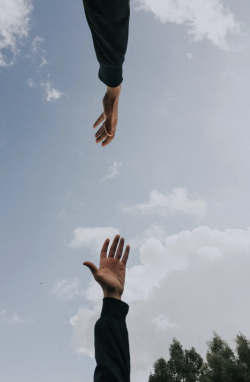Think about the initial stages of entering a relationship. This could be with anyone- a partner, a friend, your doctor, even the person who delivers your packages. At the beginning, it’s a little awkward, right? You don’t know exactly what kind of person they are yet, or where the relationship will even go (sometimes, nowhere…).
But slowly, and sometimes painfully slowly, you each reveal a bit of yourself. And over time, you grow closer through that exchange of vulnerability. But this requires a level of trust. Sometimes that trust is discussed, but oftentimes, it is an unspoken, shared value that allows such growth.
Learning to trust others grants you the opportunity to build community. But getting there takes internal work.
Trusting in yourself means accepting who you are in your most authentic state. This sounds like a no brainer, but this notion is actually easier said than done.
The foundation of self-trust requires honoring your own standards. This means respecting and representing the core values and morals that you uphold, regardless of whatever situation you’re in or whoever you’re around.
Through this foundational development, you develop your own identity. And with that identity, you can mold yourself and shape your life. As you become more and more comfortable with yourself, you inherently, unconsciously begin to trust yourself.
Self-trust is an unwavering self-love.
Trusting in yourself doesn’t mean you’re suddenly perfect, and it definitely doesn’t mean you can’t make mistakes. In fact, it means acknowledging that you will make mistakes, but using those times as fuel to grow. It means acknowledging you’ll never be perfect while striving for your version of perfect.
Internal trust takes self examination. But with that exploration, we evolve to understand our power. To learn our strengths and weaknesses, what we can contribute to others, and what we need from others, too.
And that is how we build community.
A community thrives when its members are different. When we all add something new, something fresh, and support each other in areas where the other could develop more.
Building a strong community requires trust. It asks us to put aside our egos and put faith in the people we’ve empowered. It asks us to acknowledge that when we all have a common goal, every person is acting to achieve that.
Community is growth; it’s transformation; it’s support – it’s all of the things we can be when we trust in one another.





0 Comments